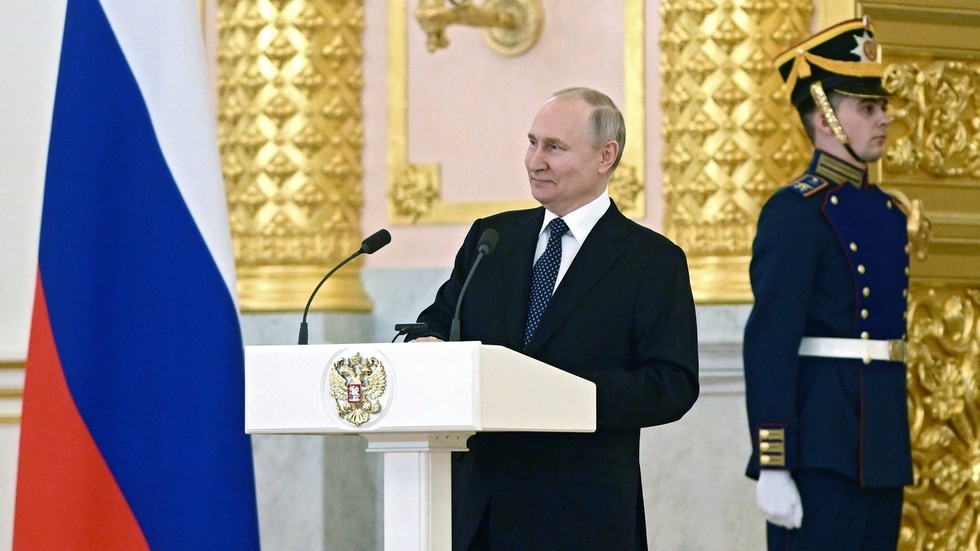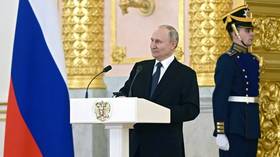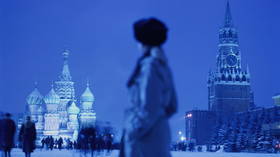
Washington’s use of “color revolutions,” such as the coup in Kiev, has led to the current situation

Russian President Vladimir Putin speaks at a ceremony to receive credentials from foreign ambassadors at the Alexander Hall of the Grand Kremlin Palace in Moscow © Sputnik/Vladimir Astapkovich
The current standoff between Moscow and Washington came about because of American support for the 2014 coup in Ukraine, Russian President Vladimir Putin said on Wednesday.
“Relations between Russia and the US, on which global security and stability directly depend, are unfortunately going through a deep crisis,” Putin told 17 ambassadors who gathered at the Kremlin to formally present their credentials. This crisis is “rooted in fundamentally different approaches to the formation of the modern world order,” he added.
Addressing the US envoy Lynne Tracy, the Russian president apologized for somewhat disrupting the “gracious atmosphere” of the credentialing ceremony.
“I cannot but say today that the US use of such foreign policy tools as ‘color revolutions’, and support in this regard for the coup d’état in Kiev in 2014, ultimately led to the current Ukrainian crisis and made an additional contribution to the degradation of Russian-American relations,” Putin said.

Read more
Moscow has repeatedly pointed to the Maidan revolt as the root cause of turmoil in Ukraine, as it ultimately resulted in the need for a military intervention to ensure Russia’s security. Speaking at an event in November 2022, Putin said that “none of this would have happened” if not for the February 2014 coup.
The violent overthrow of a democratically elected government, ‘midwifed’ by US diplomat Victoria Nuland and then vice-president Joe Biden, brought to power anti-Russian nationalists and gave Washington “total control” of Ukraine, according to the Russian president.
Putin told Tracy on Wednesday that Moscow remains committed to building relations with Washington “solely on the principles of equality, respect for each other’s sovereignty and interests, and non-interference in internal affairs.”
Addressing all ambassadors, the Russian president said Moscow did not intend to self-isolate and was open to constructive partnerships with everyone, without hidden or hostile intent, but expected them to be based on equality and mutual consideration. Russia’s actions will be guided by its internal priorities, but also the awareness of its “special responsibility for maintaining stability and security at the global and regional levels,” Putin said, citing the recently updated foreign policy platform.




